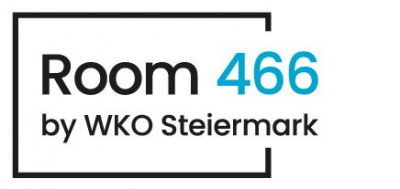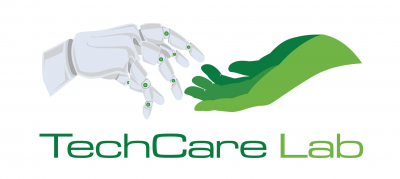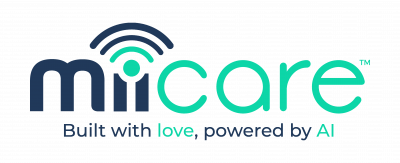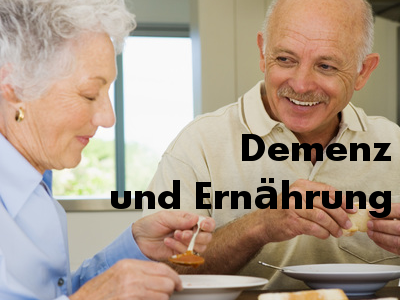Demenz und Ernährung
Kursstart: 17. Januar 2023
Demenz und Ernährung
Dr. Sandra Schüssler, Wolfgang Staubmann BSc MSc, Manuela Hatz MEd, Eva Resinger BA Bsc , Mag. Dr. Brigitte Pleyer, Dr. Verena Tatzer, Ulrike Selzer-Haslauer, Helga Fabianits, Prof. Sandra Holasek
Wissenschaftliche Einordnung:
Kursstart: 17. Januar 2023
Demenz und Ernährung
Dr. Sandra Schüssler, Wolfgang Staubmann BSc MSc, Manuela Hatz MEd, Eva Resinger BA Bsc , Mag. Dr. Brigitte Pleyer, Dr. Verena Tatzer, Ulrike Selzer-Haslauer, Helga Fabianits, Prof. Sandra Holasek
-
Umfang: 6 Lektionen
-
Aufwand: 6 Stunden/Woche
-
Teilnehmende aktuell: 3007
-
Lizenz: CC BY-NC-SA 4.0
-
Kursstart: 17. Januar 2023
-
Kursende: -
-
Status aktuell: Laufender Kurs
-
Verfügbare Sprachen:
Details zum Kurs
Inhaltsübersicht
Allgemeine Informationen zum Kurs
Weltweit sind mehr als 55 Millionen Menschen von einer Demenz betroffen. Diese Anzahl wird in Zukunft weiter steigen und somit zu Belastungen der Gesundheitssysteme führen. Das vertiefte Wissen von Gesundheitsberufen über die Demenz und ihrer negativen Auswirkungen, wie Ernährungsprobleme, ist notwendig, um gezielte Präventionsstrategien zu verfolgen und adäquate Behandlung und Pflege durchzuführen.
Deswegen wurde der Massive Open Online Course (MOOC) zum Thema Demenz und Ernährung für den Gesundheitsbereich entwickelt.
Der MOOC wird durch seine Konzeption für diverse Gesundheitsberufe kostenlos im deutschsprachigen Raum zur Verfügung stehen. Für die Zukunft wird auch eine englischsprachige Version angestrebt, um die Reichweite des MOOCs noch zu erhöhen.
Dieser Kurs wird von mehreren Hochschulpartnern erstellt und betrachtet daher viele Aspekte rund um dieses Thema. Die Zielgruppe des Kurses sind alle Gesundheitsberufe sowie interessierte Laien, wodurch der Kurs in möglichst einfacher Weise gestaltet wurde.
Dieser Kurs sollte auch von Ihnen besucht werden
Der Kurs wurde mit dem Hintergedanken erstellt, für alle Gesundheitsberufe und interessierte Laien Inhalte zu bieten. Sowohl theoretische als auch praktische Lerninhalte bieten eine breite Palette an Hilfe auch für interessierte Laien, die beispielsweise ein Familienmitglied mit beginnender Demenz betreuen.
Darüber hinaus soll der Kurs als Basis für Personen in Gesundheitsberufen dienen, sich in einem Themenbereich der Partner zu vertiefen. Mit dem positiven Ablegen der Leistungsüberprüfung dieses Kurses sind Sie berechtigt, sich an eine der Hochschulen zu wenden und eine Prüfung in diesem Bereich abzulegen.
Kursinhalt
Die Inhalte gliedern sich in sechs Lektionen.
- Überblick, Definitionen, Anzeichen von Demenz: Was bedeutet Demenz und welche Anzeichen weisen darauf hin? Wodurch kann Demenz ausgelöst werden und welche Auswirkungen wie beispielsweise Mangelernährung kann Demenz haben?
- Risikofaktoren, Prävention und Ernährungskonzepte: Wie kann Demenz beispielsweise durch Ernährung vorgebeugt werden? Welche Ernährungskonzepte und Lebensmittelwahl wird empfohlen?
- Auswirkungen von Demenz auf das Ernährungsverhalten: Welche Bereiche der Ernährung können durch Demenz betroffen sein und welche Auswirkungen können sich daraus ergeben?
- Praktische Aspekte der Ernährung bei Demenz: Welche Praxisempfehlungen und Maßnahmen bei Ernährungsproblemen können für eine adäquate Ernährungsversorgung von Demenzbetroffenen herangezogen werden?
- Auswirkungen auf den Alltag und praktische Tipps aus der Ergotherapie: Wie kann man die Aktivität Essen unterstützen ?
- Neue Technologien als Unterstützung: Welche technische Unterstützung kann bei Demenz im Bereich Ernährung angewendet werden?
Lernziele
- Absolvent:innen wissen, wie man Demenz erkennen kann und welche Zusammenhänge es zur Ernährung gibt.
- Risikofaktoren können vermieden werden und passende Ernährungskonzepte können ausgewählt werden.
- Absolvent:innen können eine geeignete Lebensmittelwahl für eine ausgewogene Ernährung / Empfehlungen und Portionsgrößen treffen und wissen um Unterschiede zwischen der österreichischen (Steirischen) und mediterranen Ernährungspyramide. Sie wissen, wie man Ess- und Trinkverhalten dokumentieren kann und können das Trinkverhalten mit dem B.A.U.M. Prinzip zur Verbesserung anwenden.
- Absolvent:innen können praktische Hilfeleistungen geben und geeignete Maßnahmen bei Essensablehnung und Appetitanregung treffen
- Die Absolvent:innen können mögliche Auswirkungen von neurokognitiven Einschränkungen auf Aktivitäten des täglichen Lebens, insbesondere in Bezug auf Ernährung nennen, sind für Aktivitäten für Menschen mit Demenz sensibilisiert und können Vereinfachungen von Aktivitäten und Unterstützung vorschlagen und individuelle Unterstützung und Hilfsmittel beim Essen und Trinken anbieten.
- Neue Technologien können sinnvoll und passend ausgesucht und eingesetzt werden.
Vorkenntnisse
Es sind keine Vorkenntnisse nötig.
Dieser Kurs soll von interessierten Laien ebenso wie Personen aus Gesundheitsberufen besucht werden können.
Für ein Zertifikat sollten Sie einen Großteil der Fragen beantworten können und für eine Prüfung an einer Universität sollten Sie sich bitte an die entsprechende Hochschule richten. Kontaktieren Sie diesbezüglich bitte die Person, die an der Kurserstellung beteiligt war und von der jeweiligen Hochschule stammt.
Sie können dieses Zertifikat auch bei Fachverbänden einreichen, um Fortbildungspunkte zu erhalten.
Dazu gehört beispielsweise, dass Sie die Teilnahmebestätigung bei ihrem MTD-CPD Zertifikatsantrag unter www.diaetologen.at einreichen können. Bitte beaxhten Sie die Richtlinien und Anweisungen des Fachverbands der Diätologie.
Kursablauf
Nach einer Vorstellung der jeweiligen PartnerInnen und Partnerhochschulen bekommen Sie einen Überblick über Demenz und Zusammenhänge zur Ernährung.
Danach vertiefen Sie sich in gewisse Felder, beginnend mit dem Vorbeugen und Erkennen von diätologischen Betrachtungen und praktischen Tipps bis zu Hilfe durch Technik.
Bitte lesen Sie sich die Unterlagen genau durch und nutzen Sie die Videos als Hilfestellung.
Reflektieren Sie nach jeder Lektion über Gelerntes mit Ihrem Umfeld und werfen Sie einen Blick auf weiterführende Literatur.
Sollte Sie das Thema besonders interessieren, legen wir Ihnen weitere Kurse wie
- Essgenuss im Alter - Ernährungsgeragogik unterstützt
- und Mangelernährung bei älteren Menschen ans Herz.
Zertifikat
Lizenz
Zusätzliche Inhalte
Sie können in Betracht ziehen diesen Kurs bei Organisationen wie dem Verband der Diätologen oder Logopäden einzureichen.
Bitte folgen Sie den Anweisungen des jeweiligen Verbandes. Zumeist benötigen Sie das Zertifikat, das Sie durch diesen Kurs erhalten. Danach können Sie es einreichen und prüfen lassen, ob Sie damit Weiterbildungspunkte erhalten. Entschieden wird von den Einrichtungen von Fall zu Fall.
Kursleitung
Dr. Sandra Schüssler, Wolfgang Staubmann BSc MSc, Manuela Hatz MEd, Eva Resinger BA Bsc , Mag. Dr. Brigitte Pleyer, Dr. Verena Tatzer, Ulrike Selzer-Haslauer, Helga Fabianits, Prof. Sandra Holasek
Dieser Kurs wurde als Gemeinschaftsprojekt von vier Hochschulen erstellt, um das Thema Demenz und Ernährung von mehreren Seiten betrachten zu können. Dafür wurden theoretische und praktische Teile verschiedener Fachrichtungen aus Pflege, Ergotherapie, Logopädie, Diätologie und Ernährungsgeragogik erarbeitet.
Dieses Ziel wurde durch intensive Zusammenarbeit zwischen Teams dieser Fachrichtungen der Hochschulen MedUni Graz, FH Wiener Neustadt, FH JOANNEUM und PH Steiermark erreicht. Jedes einzelne Team hat zum Gelingen und der Qualität in höchstem Maß beigetragen. Dadurch wurde ein einzigartiger Kurs möglich, der über die Grenzen von Bundesländern hinweg genutzt werden kann.
Dieser Kurs wurde erstellt durch
- Sen. Scient. Dr. Sandra Schüssler von der MedUni Graz (Technik und Gesundheitsthemen, Pflegewissenschaft) in Zusammenarbeit mit Natalie Sofia Horn, MA (Room466 by WKO Steiermark) und Dr. DI Lucas Paletta mit Team (Joanneum Research Digital) sowie mit freundlicher Unterstützung von Dr. Maurice Chales de Beaulieu, M.A. (Geschäftsführer MiiCare GmbH) und Univ. Prof.in Regina Roller Wirnsberger und Team (Universitätsklinik für Innere Medizin) durch Konzeptfeedback.
- Wolfgang Staubmann BSc MSc, Manuela Hatz MEd, Eva Resinger BA BSc von der FH JOANNEUM (Diätologie und Logopädie)
- Dr. Verena Tatzer, Ulrike Selzer-Haslauer, Helga Fabianits von der FH Wiener Neustadt (Ergotherapie)
- Mag. Dr. Brigitte Pleyer von der PH Steiermark (Ernährungswissenschaft und Ernährungsgeragogik)
- Prof. Sandra Holasek, Mag. Lisa Maurer und DI (FH) Eva Ulbrich von Sterz (Organisation und Technik)
Partner:innen
Medizinische Universität Graz
Sen. Scient. Dr.in Sandra Schüssler ist Pflegewissenschafterin, Senior Scientist und Leiterin der Forschungsgruppe TechCare Lab an der Medizinischen Universität Graz. Das TechCare Lab hat das Ziel, (neue) Technologien (z.B. soziale Roboter, virtuelle Realität) für den Gesundheitsbereich in multidisziplinärer Zusammenarbeit mitzuentwickeln, weiterzuentwickeln und zu testen. Ein besonderer, aber nicht alleiniger Schwerpunkt der Forschungsgruppe liegt auf der Zielgruppe der Personen mit kognitiven Einschränkungen, wie Demenz und deren Pflegeprobleme (z.B. Mangelernährung).
PH Steiermark
Mag.a Dr.in Brigitte Pleyer ist am Institut für Sekundarstufe Berufsbildung im Fachbereich Ernährung der Pädagogischen Hochschule Steiermark in Graz (https://www.phst.at/ausbildung/studienangebot/sekundarstufe-berufsbildung/bachelor-sekundarstufe-bb/ernaehrung/) als Lehrende und Ernährungswissenschafterin tätig. Sie hat ihr Lehramtsstudium und Doktorat am Department für Ernährungswissenschaften der Universität Wien absolviert. Danach arbeitete sie viele Jahre in der Ernährungsprävention und verfasste gemeinsam mit Alexandra Raidl das Fachbuch „Ernährung im Alter“. Ab dem Studienjahr 2019/2020 etablierte Sie die „Ernährungsgeragogik“ für den Fachbereich Ernährung des Lehramtsstudiums Sekundarstufe Berufsbildung an der Pädagogischen Hochschule. Ihr Schwerpunkt in Forschung und Lehre ist die fachdidaktische Umsetzung von ernährungswissenschaftlichen Inhalten auch zu ernährungsgeragogischen Themen. Seit 22.02.2022 steht ein iMooX-Kurs zum Thema „Essgenuss im Alter – Ernährungsgeragogik unterstützt“ frei zur Verfügung: https://imoox.at/course/erngeFH JOANNEUM
Wolfgang Staubmann, BSc MSc ist als Diätologe & Dozent (FH) am Institut Diätologie der FH JOANNEUM tätig. Seine Schwerpunkte in der Forschung liegen in folgenden Bereichen: Arbeit an Möglichkeiten der Genussförderung und adäquaten Ernährungsversorgung älterer Menschen bei veränderten Sinneswahrnehmungen wie Geschmack und Geruch; Arbeit an Fragen des Gesunden Alterns im Kontext der Ernährung, die in das Forschungslabor Health Perception Lab integriert sind. Er hat 2012 die Ausbildung zum Diätologen abgeschlossen und ist seit 2013 an der FH JOANNEUM tätig. Neben freiberuflicher Beratungstätigkeit hat er 2016 den Master of Science in Health and Nutrition am University College in Dublin abgeschlossen. Er lehrt in verschiedenen Master- und Weiterbildungslehrgängen in der Steiermark. Im Rahmen seiner Forschungstätigkeit arbeitete er an Projekten wie SCOBES-AR, FABELHAFT , DAMIA – Der alte Mensch is(s)t anders , Genussbroschüre Ernährung im Alter und anderen.
Manuela Hatz, MEd ist als Diätologin und Dozentin (FH) am Institut Diätologie der FH JOANNEUM mit den Schwerpunkten Ernährungsberatung & Kommunikation, Healthy Ageing, Didaktische Konzepte, Neue Medien & Medienarbeit im Bereich Lehre und Forschung tätig. Nach der Ausbildung zur Diätologin 1998 war sie in verschiedensten Berufsfeldern, u.a. im neurologischen Reha-Bereich sowie in der Entwicklung von Adipositastherapie-Konzepten tätig. Ergänzend absolvierte sie 2015 ihren Master im Bereich Gesundheitspädagogik und lehrt seither neben der FH JOANNEUM auch an anderen Hochschulen/Ausbildungen wie zB an der PH Steiermark. Darüber hinaus betreut sie in freiberuflicher Praxis seit vielen Jahren Klient*innen im Rahmen individueller Ernährungstherapien. Im Rahmen ihrer Tätigkeit u.a. in den Projekten EUTIP und FABELHAFT hat sie sich intensiv mit Aspekten des Healthy Ageing beschäftigt.
Eva Maria Resinger, BA BSc ist Logopädin, Linguistin & Hochschullektorin (FH) am Institut Logopädie der FH JOANNEUM. Ihre Schwerpunkte in der Lehr- und Forschungstätigkeit liegen in den Bereichen Neurologie und Geriatrie. Hier beschäftigt sie sich speziell mit den Themenbereichen der neurologisch bedingten Schluck-, Sprach- und Sprechstörungen sowie der Linguistik. Eva Resinger schloss 2011 ihr Linguistikstudium an der Karl Franzens Universität in Graz und 2014 ihr Logopädiestudium an der FH JOANNEUM in Graz ab. Von 2014 bis 2017 arbeitete sie als Tutorin bzw. wissenschaftliche Mitarbeiterin, seit 2017 als Lektorin am Institut Logopädie. Im Rahmen ihrer Forschungstätigkeit arbeitete sie u.a. in Projekten wie SCOBES-AR , FABELHAFT sowie einigen logopädie-spezifischen Projekten mit. Sie ist zudem als Logopädin im stationären Setting auf einer Akut-Neurologie und einer geriatrischen Abteilung tätig.
In beratender Funktion: Romana Eichelsberger, BSc MEd ist als diplomierte Gesundheits- und Krankenpflegeperson und Pflegepädagogin/Dozentin (FH) mit den Lehr- und Forschungsschwerpunkten der Geriatrie und der simulationsbasierten Lehre am Institut Gesundheits- und Krankenpflege der FH JOANNEUM. Durch die mehrjährige berufliche Tätigkeit in der Albert Schweitzer Klinik (GGZ) in den Bereichen der Langzeitpflege, der Akutgeriatrie/Remobilisation sowie der Apallic Care Unit konnte sie ihre praktische berufliche Expertise vertiefen. Sie absolvierte das Studium Gesundheits- und Pflegewissenschaft an der Medizinischen Universität Graz sowie Gesundheitspädagogik an der FH Kärnten. Des Weiteren vertiefte sie sich als Practitioner in Medical Simulation in der simulationsbasierten Lehre in der Gesundheits- und Krankenpflege und war maßgeblich am Aufbau des Studiengangs und des Simulationszentrums beteiligt. Derzeit ist sie in der Studiengangsorganisation als Studienjahrkoordinatorin für das 2. Studienjahr zuständig. Sie ist Vorsitzende der Bundesarbeitsgemeinschaft für Pflegepädagogik und engagiert sich in diesem Bereich sowie in der Vernetzung zwischen Theorie und Praxis.
Das ist die FH JOANNEUM | Imagevideo - YouTube
FH Wiener Neustadt
Dr.in phil. Verena C. Tatzer, MSc ist Ergotherapeutin und wissenschaftliche Mitarbeiterin am Bachelorstudiengang Ergotherapie. https://www.fhwn.ac.at/en/employee/tatzer-verena https://www.researchgate.net/profile/Verena-Tatzer. Ihre Grundausbildung hat Verena Tatzer 2003 in Baden abgeschlossen Ihre praktische Erfahrung hat sie in der Psychiatrie und Geriatrie in Wien gesammelt und 2008 das joint program, den „European Master in Occupational Therapy“ am Karolinska Institute in Schweden, in Dänemark, an der Hogeschool von Amsterdam und Universität Brighton abgeschlossen. 2017 hat sie an der Universität Klagenfurt in Palliative Care und OrganisationsEthik promoviert. Aktivität und Partizipation von Menschen mit kognitiven Einschränkungen/Demenz stehen im Mittelpunkt ihrer Forschungsarbeiten. Weitere Schwerpunkte in Forschung und Lehre sind Geriatrie und Gerontologie, Ergotherapie Grundlagen und Occupational Science sowie narrative und partizipative Forschungsmethoden. Sie ist Vorstandsmitglied der österreichischen Gesellschaft für Geriatrie und Gerontologie und leitet die Sektion „Klinische Gerontologie“. Aktuell leitet sie das Projekt „Eine Bibliothek für Alle -die demenzfreundliche Bibliothek Wiener Neustadt“ (www.fhwn.ac.at/dembib).
Der Mooc ist in Zusammenarbeit mit Helga Fabianits und Ulrike Selzer-Haslauer entstanden, die beide gemeinsam mit Verena Tatzer im Wahlpflichtfach „Ergotherapie mit Menschen mit Demenz und ihren Angehörigen“ lehren.
Helga Fabianits ist seit 1988 als Ergotherapeutin im geriatrischen Bereich in unterschiedlichen Settings tätig. Ende der 1990er Jahre spezialisierte sie sich zunehmend auf die ergotherapeutische Arbeit mit Menschen mit Demenz und arbeitete unter anderem 10 Jahre auf einer Schwerpunktstation für Menschen mit dementieller Erkrankung. 2012 schloss sie sich mit zwei engagierten Kolleginnen zum „Ergoteam Demenz“ www.ergoteam-demenz.at – einer Praxisgemeinschaft für Therapie und Bildung – zusammen. Sie ist als freie Vortragende tätig und arbeitet als Expertin immer wieder in unterschiedlichen Projekten mit, zum Beispiel 2020 bei „Gut leben mit Demenz in der Gemeinde“ www.fhwn.ac.at/dembib. Als externe Lehrende unterrichtet sie an der FH Wr. Neustadt und der FH Campus Wien im Studiengang Ergotherapie. Zum Thema Essen und Demenz verfasste sie mit Edeltraud Cortolezis und Ulrike Selzer-Haslauer einen Artikel in der Fachzeitschrift Praxis Ergotherapie. www.ergoteam-demenz.at, helga.fabianits@gmail.com
Ulrike Selzer-Haslauer ist seit 1984 Ergotherapeutin, Schwerpunkt der Ergotherapie ist v.a. der Erhalt der größtmöglichen Selbstständigkeit und Autonomie, das Beibehalten von wertgeschätzten Tätigkeiten und die soziale Teilhabe. Sie hat langjährige Erfahrung im Bereich Geriatrie in unterschiedlichen Settings – sowohl angestellt als auch freiberuflich. Seit 2001 hat sie ihren Schwerpunkt und Expertise im Fachbereich Demenz. Sie ist seit über 10 Jahren als Referentin an verschiedenen Ausbildungsstätten, Autorin von Fachartikeln, aktive Teilnehmerin an verschiedensten Projekten und Workshop-Leiterin im Bereich „Ergotherapie und Umgang mit Menschen mit Demenz“ tätig. Sie ist seit 2012 Teil der Praxisgemeinschaft Ergoteam Demenz in Wien, mit dem Schwerpunkt Ergotherapie und Bildung für Menschen mit Demenz und deren Betreuungspersonen.
Zusatzausbildungen/Fortbildungen/ Erfahrungen:
- Ergotherapie in der palliativen Versorgung
- Basale Stimulation
- Biografiearbeit
- Kurse in Validation
- Demenz-Balance-Modell – Multiplikatorin (https://perspektive-demenz.de/demenz-balance-modell)
- Demenz- Fortbildungen und Teilnahme bzw. Gestaltung von Arbeitskreisen, Kongressen und Aktionstagen, demenzfreundliche Gemeinden/Bezirke
- Unterrichtstätigkeit bei verschiedensten Bildungsträgern
- Jahrelange persönliche Erfahrung als Angehörige eines Familienmitglieds mit Demenz
“You matter because you are you, and you matter to the end of your life.” (Dame Cicely Saunders, Gründerin der Hospiz-Bewegung)
Room466
Natalie Sofia Horn, MA ist als Projektmanagerin und Sozialwissenschaftlerin im Room466 tätig. Sie forscht und arbeitet unter anderem in den Themenfeldern Talent Management und digitale Lernformen. Room466 ist eine neu gegründete F&E Abteilung der Wirtschaftskammer Steiermark, welche durch die Durchführung von nationalen und internationalen Projekten darauf abzielt, die steirische Wirtschaft zukunftsfähig mitzugestalten und sowohl Arbeitergeber:innen als auch Arbeitnehmer:innen in ihrer Entwicklung zu unterstützen. In diesen Projekten werden zukunftsrelevante Themen wie Nachhaltigkeit & Green Economy, Talent Management sowie digitale Bildung und neue Lernformen bearbeitet.-
PH Steiermark
-
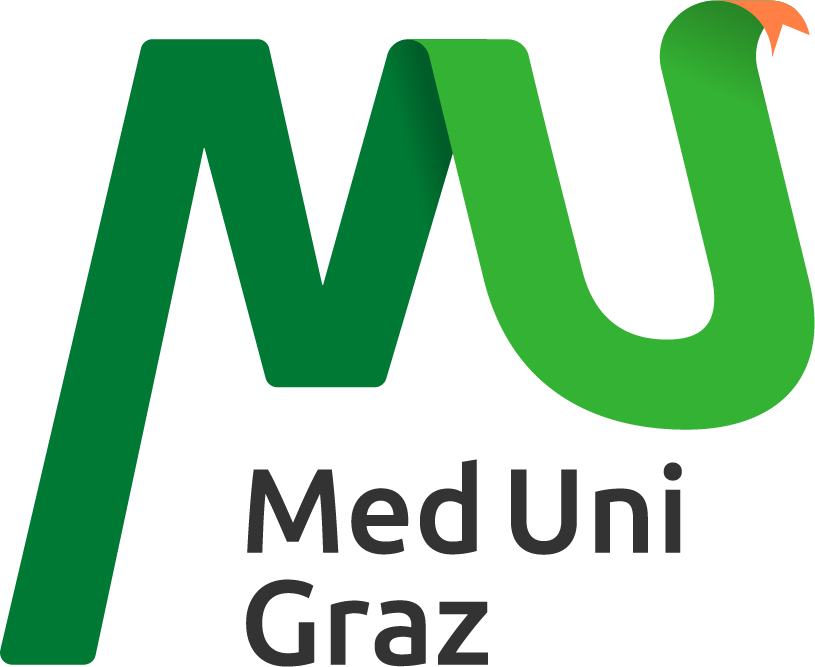
Medizinische Universität Graz
-
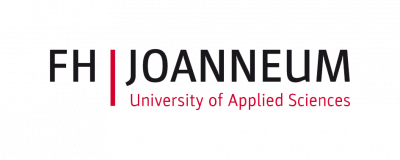
FH JOANNEUM
-
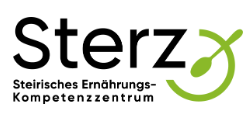
Sterz - Steirisches Ernährungskompetenzzentrum
-
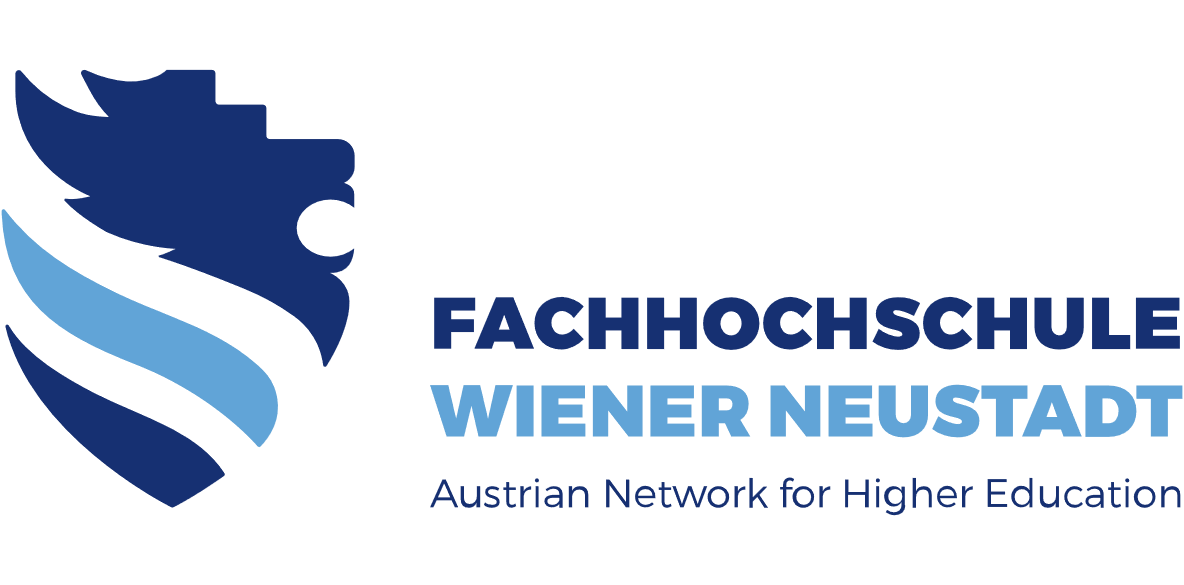
FH Wiener Neustadt
-
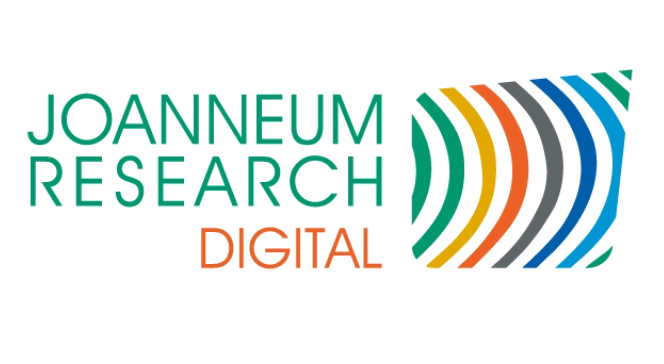
Joanneum Research Digital
-
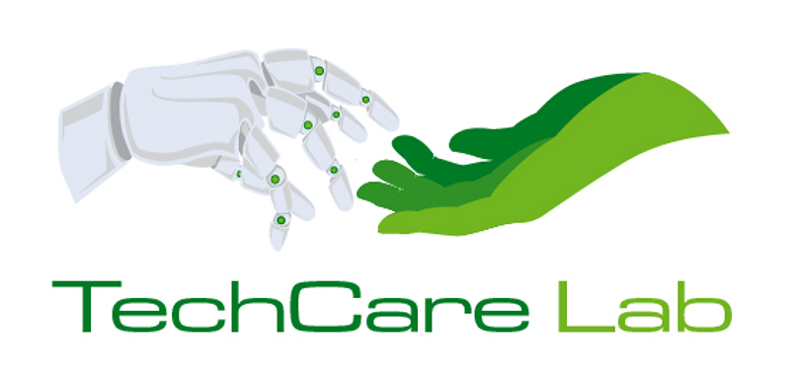
TechCare Lab
-

Miicare
-
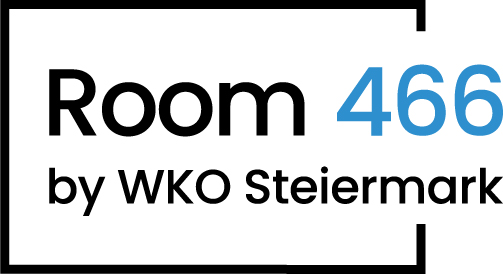
Room 466

